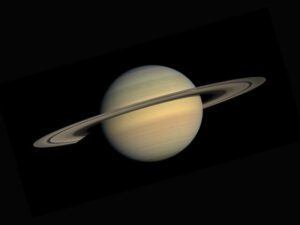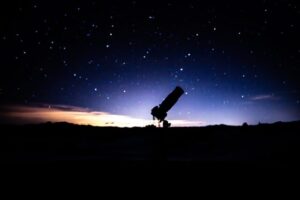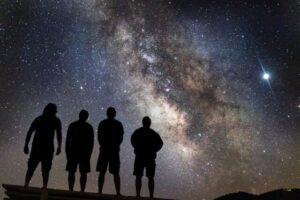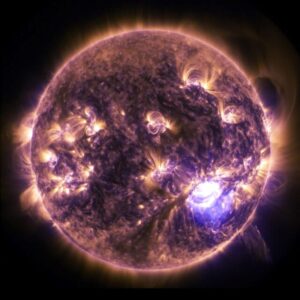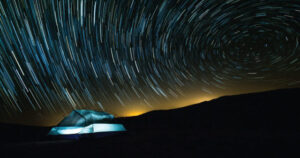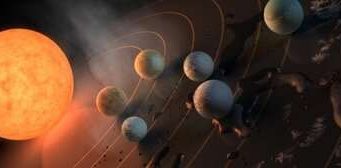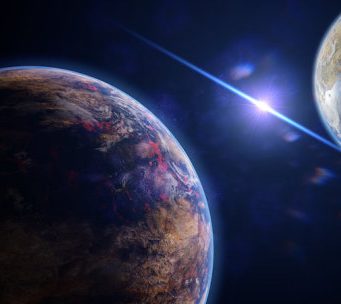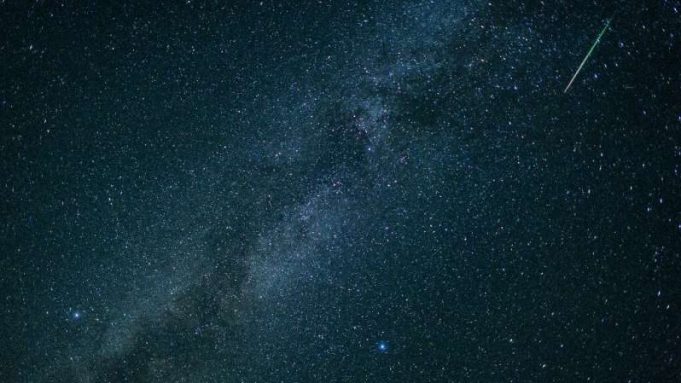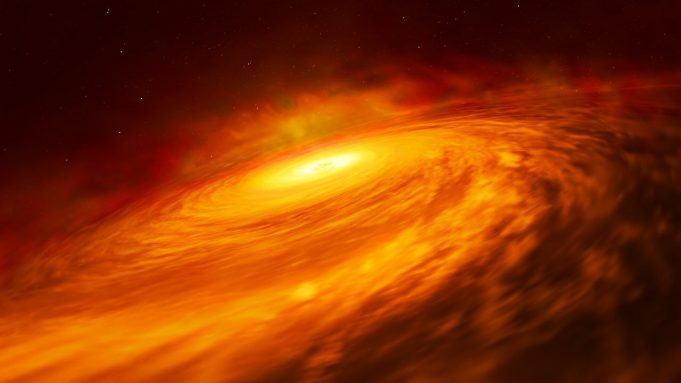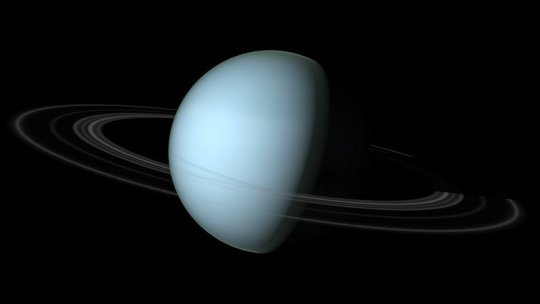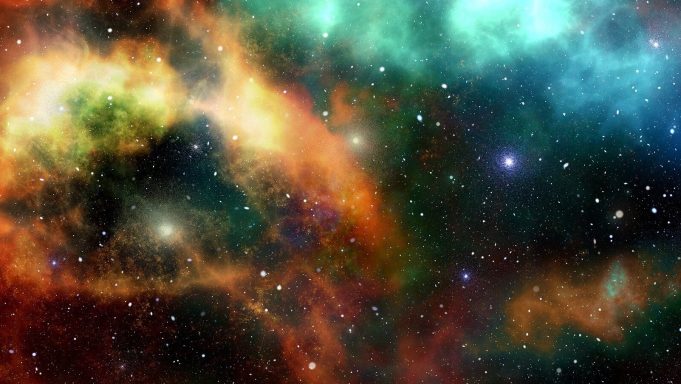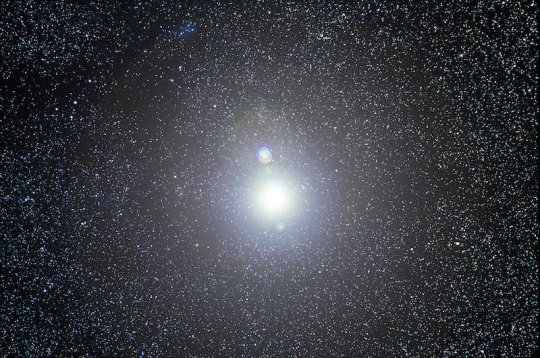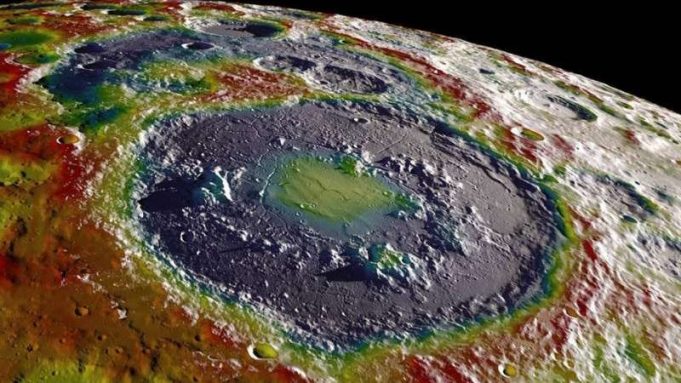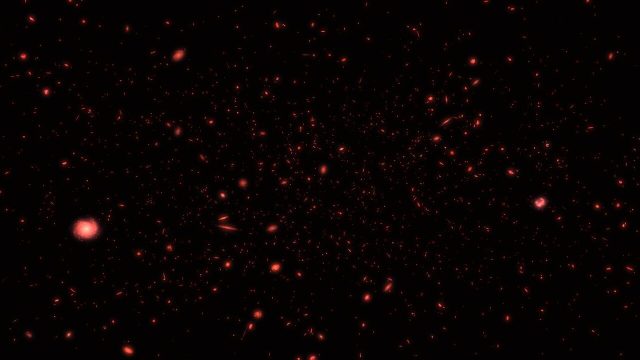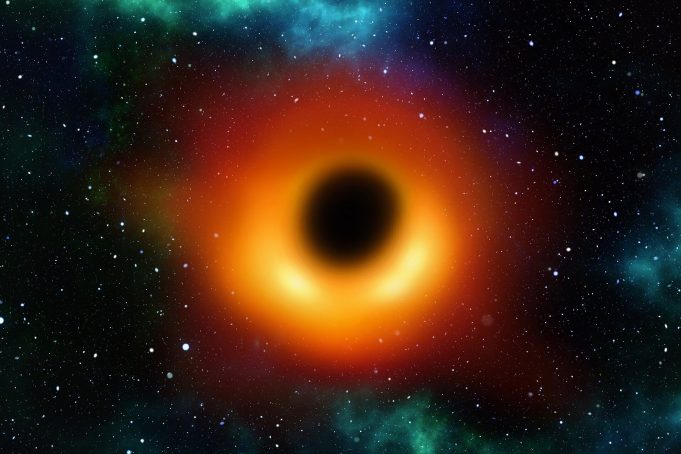The Milky Way gobbled up a galaxy one quarter of its mass 10 billion years ago in a "violent collision" that didn't fully settle for eons, astronomers said in new research published Monday.
Previous studies had suggested that our home...
A new study spearheaded by Earth scientists at the University of Cologne's Institute of Geology and Mineralogy has constrained the age of the Moon to approximately 50 million years after the formation of the solar system. After the formation...
Astronomers using the NASA/ESA Hubble Space Telescope have observed an unexpected thin disc of material encircling a supermassive black hole at the heart of the spiral galaxy NGC 3147, located 130 million light-years away.
The presence of the black hole...
The rings of Uranus are invisible to all but the largest telescopes -- they weren't even discovered until 1977 -- but they're surprisingly bright in new heat images of the planet taken by two large telescopes in the high...
When NASA's Transiting Exoplanet Survey Satellite launched into space in April 2018, it did so with a specific goal: to search the universe for new planets.
But in recently published research, a team of astronomers at The Ohio State University...
That gold on your ring finger is stellar -- and not just in a complimentary way.
In a finding that may overthrow our understanding of where Earth's heavy elements such as gold and platinum come from, new research by a...
The Moon's south pole region is home to some of the most extreme environments in the solar system: it's unimaginably cold, massively cratered, and has areas that are either constantly bathed in sunlight or in darkness. This is precisely...
A top goal in cosmology is to precisely measure the total amount of matter in the universe, a daunting exercise for even the most mathematically proficient. A team led by scientists at the University of California, Riverside, has now...
New results from the NASA/ESA Hubble Space Telescope suggest the formation of the first stars and galaxies in the early Universe took place sooner than previously thought. A European team of astronomers have found no evidence of the first...
An astrophysicist at the University of Bologna and a neurosurgeon at the University of Verona compared the network of neuronal cells in the human brain with the cosmic network of galaxies... and surprising similarities emerged
In their paper published in Frontiers...
Echoes in gravitational wave signals suggest that the event horizon of a black hole may be more complicated than scientists currently think.
Research from the University of Waterloo reports the first tentative detection of these echoes, caused by a microscopic...



